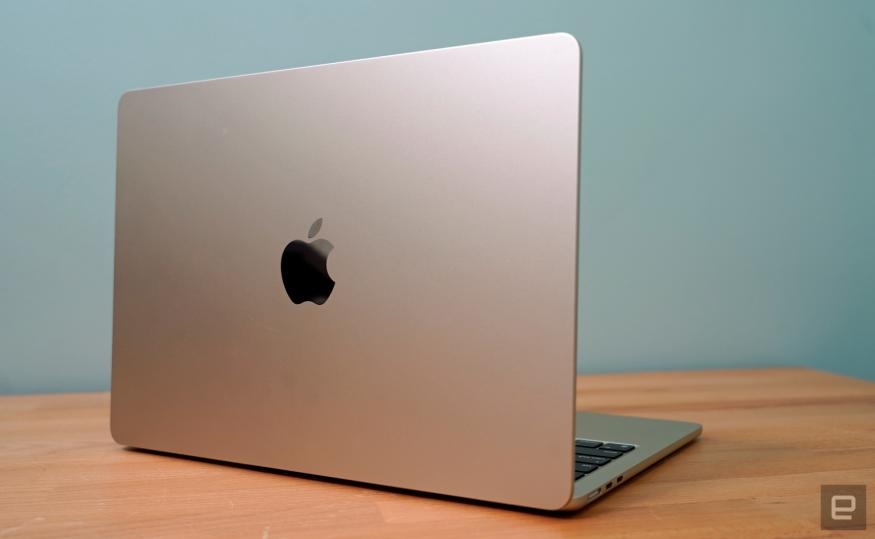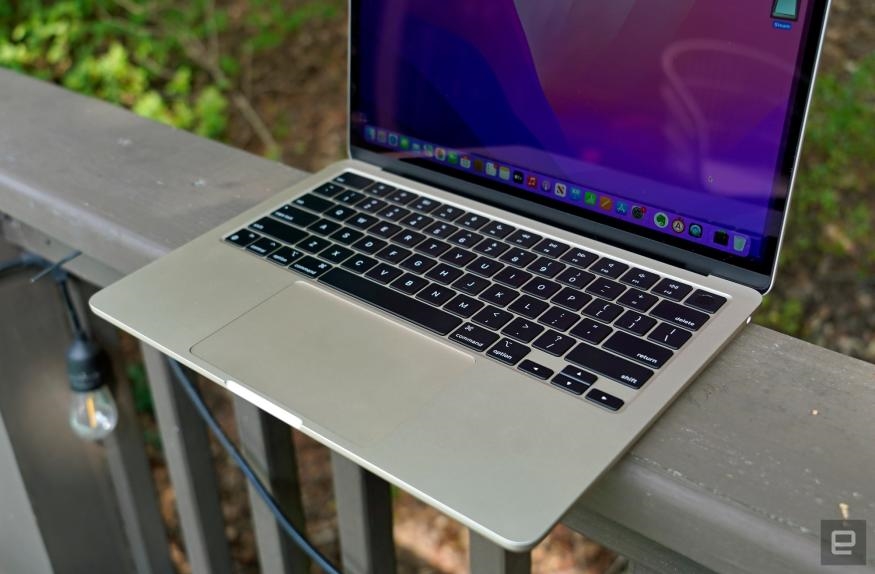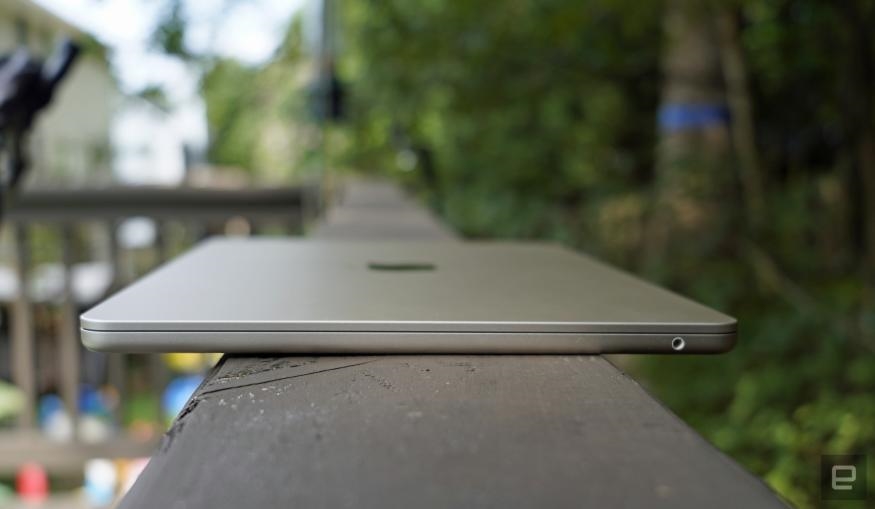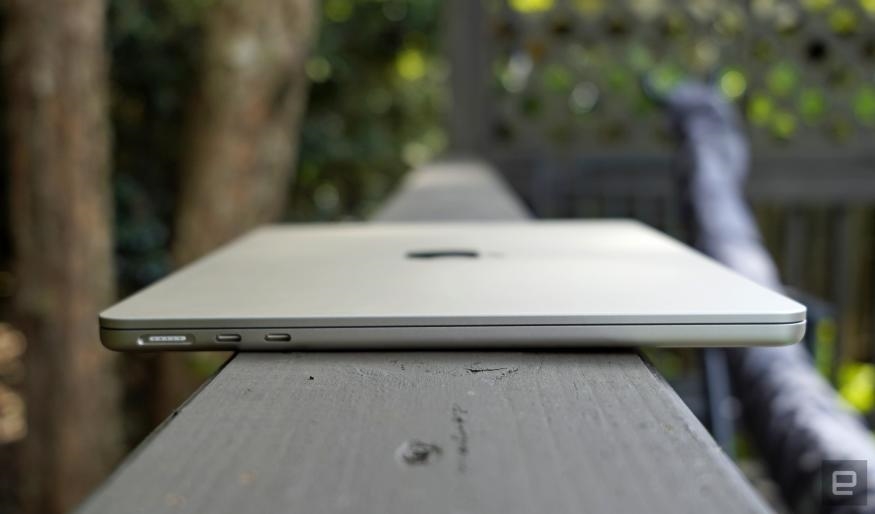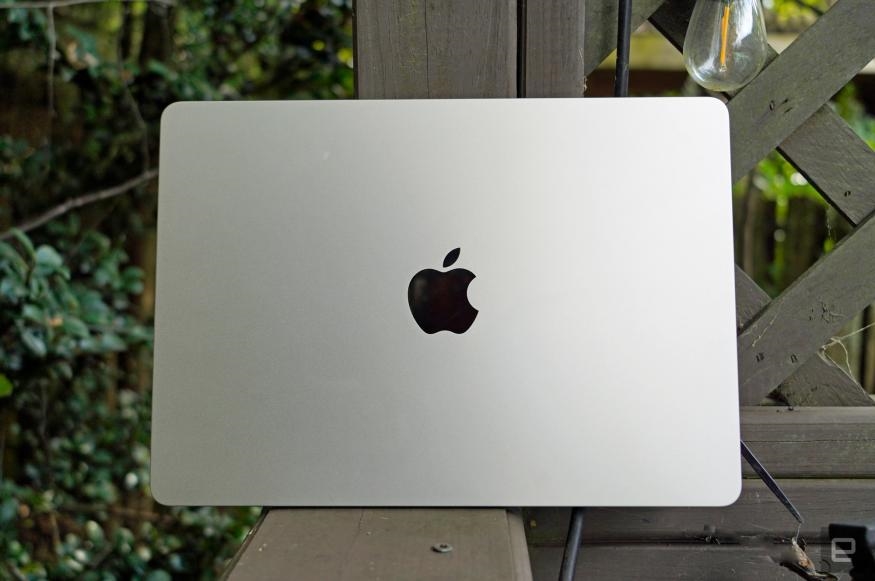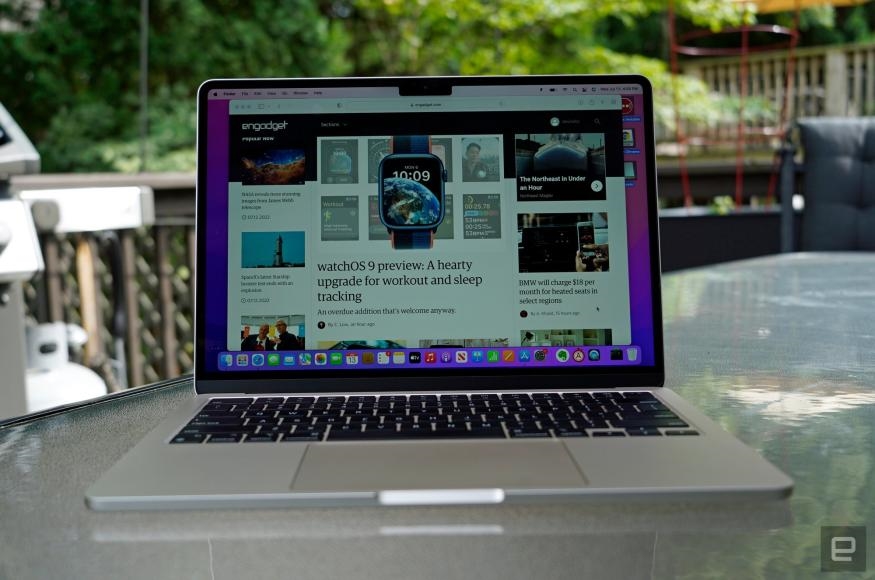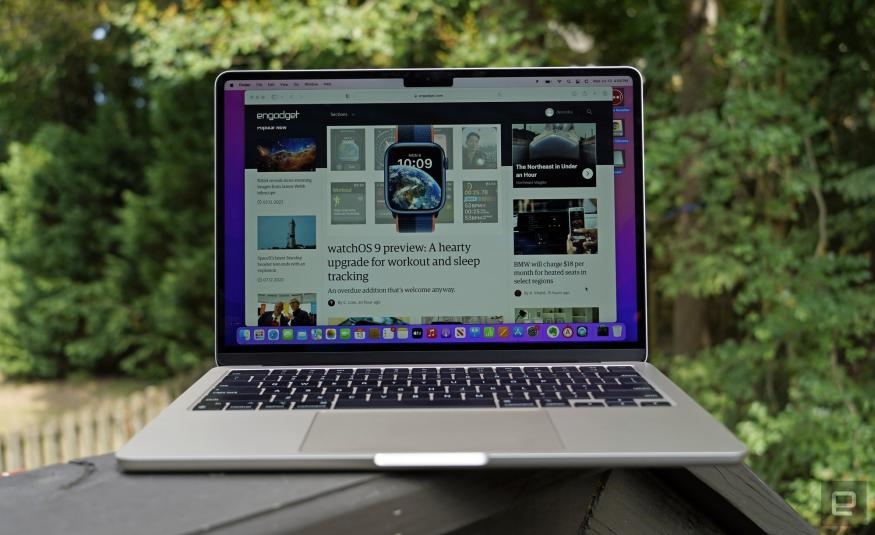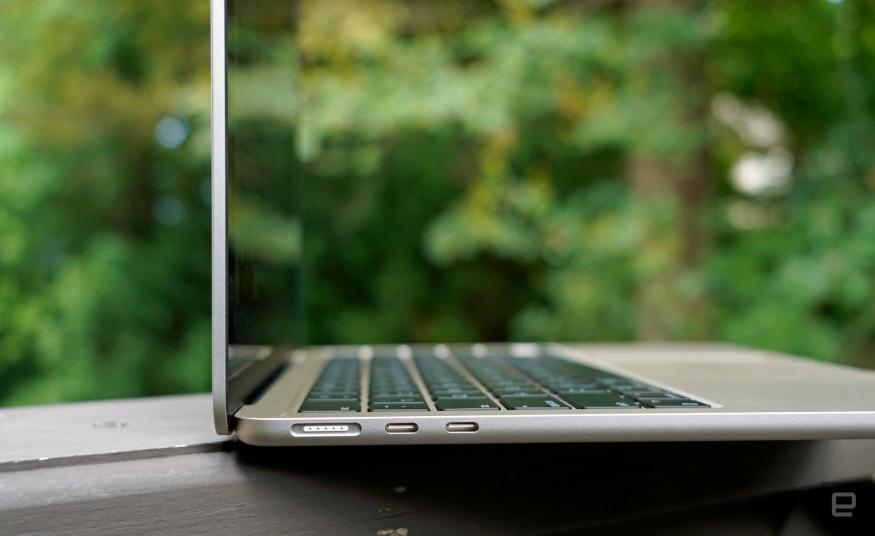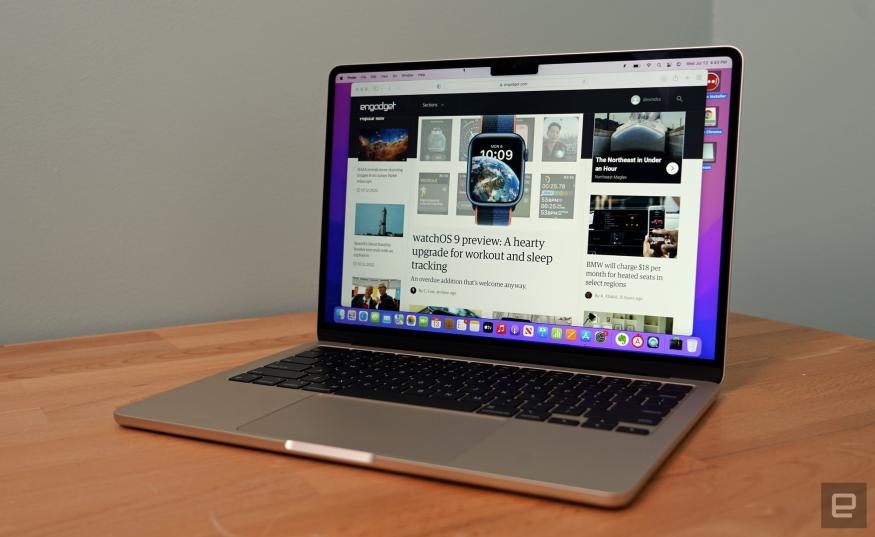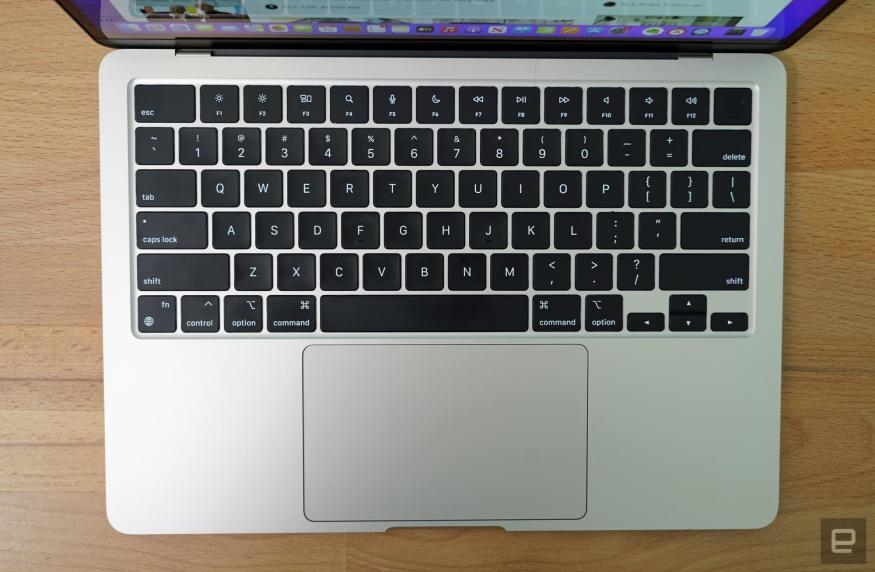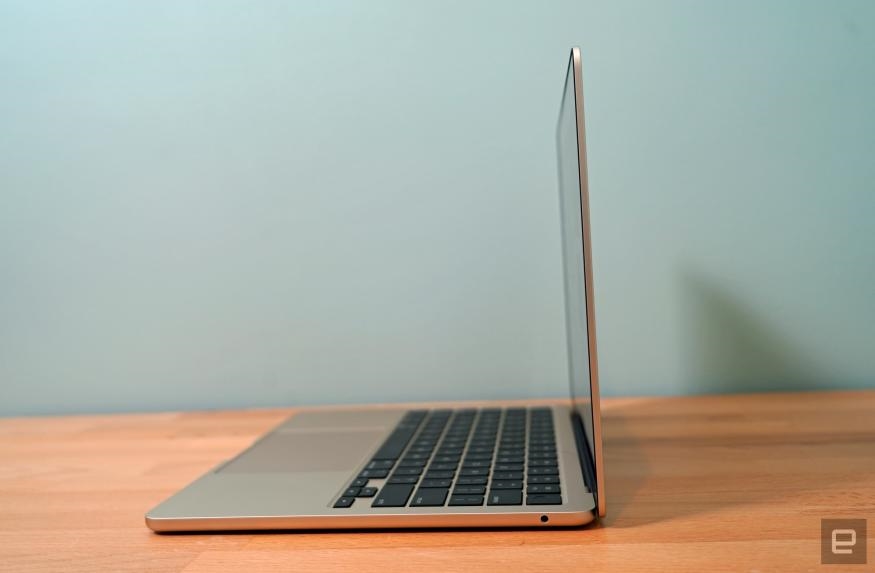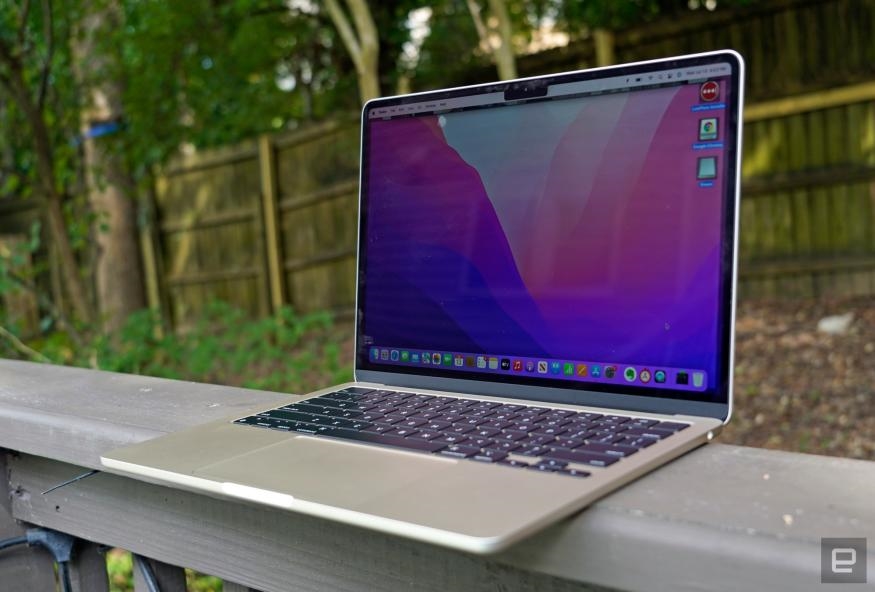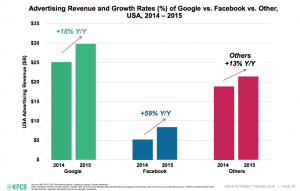The new MacBook Air is one of Apple’s most important computers since Steve Jobs pulled the original Air out of an envelope. It shows what’s possible when Apple builds an ultraportable entirely around its mobile chips, instead of lazily sticking them in old laptop designs, like with the recent 13-inch MacBook Pro. The Air is impressively thin and light, but it also has a bigger and better screen, a great set of speakers and a nifty MagSafe power adapter. And thanks to Apple’s M2 chip, it’s also far speedier than the last model, a computer I called “stunningly fast” just a year-and-a-half ago. Once again, Apple has set a new standard for ultraportables.
Before I dive into what’s under the hood, I’ll just say what we’re all thinking: This is a gorgeous computer! The Air’s trademark wedge design is gone – now, it’s uniformly thin from front to back. Apple basically repeated the PowerBook-esque design of the 14 and 16-inch MacBook Pro – more rounded edges, a notch for the webcam – but squished it into a case that measures just 11.3 millimeters thin and weighs 2.7 pounds. While it’s only a tenth of a pound lighter than the last Air, it’s far more balanced, making it easier to hold.
Apple MacBook Air (M2, 2022)
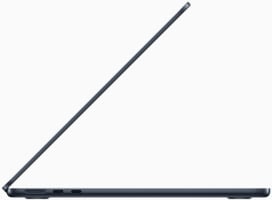
Pros
- Far thinner than before
- Gorgeous 13.6-inch screen
- Great quad-speaker setup
- Excellent M2 performance
Cons
- More expensive than before
- Some speed throttling for extended tasks
- No ProMotion
Gallery: Apple MacBook Air (M2, 2022)
When I picked up the MacBook Air for the first time, it felt more like an iPad with a built-in keyboard than a laptop. What’s funny is that it’s actually more portable than the 12.9-inch iPad Pro, which weighs about 3 pounds when combined with its Smart Keyboard. The iPad Pro has always been positioned as a futuristic ideal for truly portable computing, but it turns out it weighs the same as the 13-inch MacBook Pro. Once again, the humble Air wins out.
It’s also nice to see Apple offering a wider variety of finishes. In addition to the typical space gray and silver, there’s a brighter starlight case and a sleek black midnight option. I’ve been testing a starlight model, and the way the color pops off of the aluminum always gives me a bit of joy.
To be honest, that sense of delight can be found just about everywhere in the MacBook Air, like its new 13.6-inch Liquid Retina screen. It’s only a third of an inch larger than before, but it feels more expansive and engrossing. It helps that Apple shaved off a bit of bezel and also bumped up the brightness to 500 nits, which makes the Air far easier to use outdoors.
For the most part, the Liquid Retina screen is on par with what we saw on the 14-inch and 16-inch MacBook Pros – the only difference is that it doesn’t have ProMotion. I didn’t expect to see that high refresh rate tech on a mainstream laptop, especially after it didn’t arrive on the 13-inch MacBook Pro. But, at this point, it’s one of the only things keeping the Air from being truly perfect. Maybe I’m just being greedy, but my eyes have been spoiled. I need silky smooth scrolling on every machine! I was also a bit disappointed by the new 1080p webcam. It packs in more pixels than the previous 720p cameras, but it still looks pretty drab and grainy.
At least Apple managed to bring over its improved speaker technology from the larger MacBook Pros. The Air features a quad-speaker system with support for Spatial Audio and Dolby Atmos. And while I didn’t expect much from such a thin system, the new audio setup sounds shockingly great. It’s enough to fill a small room with sound at max volume without any distortion. There’s also a three-mic array to improve video chat sound quality, as well as a standard 3.5mm jack. (I’m sure there’s some fanatical Apple designer who wants to yank out the headphone jack to make the Air’s case even thinner, just like they did with the iPad Pro. So enjoy it while you can!)
All of these upgrades would be impressive on their own, but what makes the MacBook Air really shine is Apple’s new M2 chip. It doesn’t completely reshape the PC world, like the M1 did, but it’s a decent sequel. The M2 features 8 CPU cores and up to 10 GPU cores, and Apple says it’s around 18 percent faster for multithreaded performance. If you go for the faster GPU model, you can expect graphics speeds about 35 percent faster than the M1. Apple also doubled the M2’s memory bandwidth and raised the maximum RAM to 24GB. That’s probably overkill for an Air, but it’s nice nonetheless. There’s also hardware support for ProRes encoding and decoding, but I’d imagine most video editors would opt for more powerful MacBook Pros.
Our review unit was equipped with a 10-core GPU, 16GB of RAM and a 1TB SSD, the same as our 13-inch MacBook Pro tester. And, just as I expected, the scores between both systems were nearly identical across benchmarks like GeekBench 5 and 3DMark Wild Life Extreme. There was a significant difference in Cinebench R21’s multi-threaded test, but that wasn’t a huge surprise. The MacBook Air is a fan-less system, so its CPU has to be throttled to keep things cool. The 13-inch MacBook Pro, on the other hand, has fans and a more robust cooling setup, so it can handle longer sustained workloads.
All of my testing made it clear that the MacBook Air is just as fast as the 13-inch Pro for most tasks. It even hit the same 30fps average in Shadow of the Tomb Raider’s benchmark, which means the game would actually be playable on a crazy thin ultraportable. But you’ll have to live with a bit of slowdown if you’re doing more complex work, like video editing or 3D rendering. For most people, I think that’s a decent compromise given everything else the MacBook Air has to offer. And if you’re an actual media professional, you’re still better off with the 14-inch or 16-inch MacBook Pro, instead of the aging 13-inch model.
Not to knock on that computer too much, but now that I’ve seen the Air in action, I’m even more baffled by the 13-inch Pro. The Air has the same great keyboard and super smooth trackpad. There’s no annoying TouchBar, just trusty function keys. It even has more ports! There are two USB-C ports, but it also features a MagSafe connector for power. That means you can actually charge the MacBook Air without using up one of your precious USB-C connections! Maybe Apple should have just renamed this the MacBook Air Pro.
The 13-inch Pro does have a larger battery, which helped it last 17 hours and five minutes in our benchmark. The Air, meanwhile, reached 16 hours and 30 minutes. Still, that’s plenty of time to last you beyond a full day of work, and it’s on par with other ultraportables like Dell’s XPS 13. Apple also has a variety of power adapters to choose from: one with two USB-C ports (for charging other devices) and a 67-watt adapter for fast charging.
The one downside to the MacBook Air’s revamp is that it now starts at $1,199, $200 more than the M1 model. That older machine is still a decent option if you find it on sale or refurbished, but otherwise I’d say the M2 model is absolutely worth the extra cost. Just be prepared for the price to rise quickly as you start adding extra hardware. If you wanted to bump up to our review unit’s specs, you’d have to pay $1,899. Personally, I’d say prioritize throwing in as much RAM and SSD storage as you can. The M2 chip will still be very capable without the $100 upgrade for the more powerful GPU.
It’s remarkable to think how far the MacBook Air has come since 2008. It used to be overpriced and underpowered, a testament to Apple’s tendency towards style over substance. Since then, the entire PC industry jumped aboard the ultraportable bandwagon, and Apple found a way to pack a ton of power into a razor-thin case. Now, the MacBook Air is arguably Apple’s best laptop yet.
(15)
Report Post

